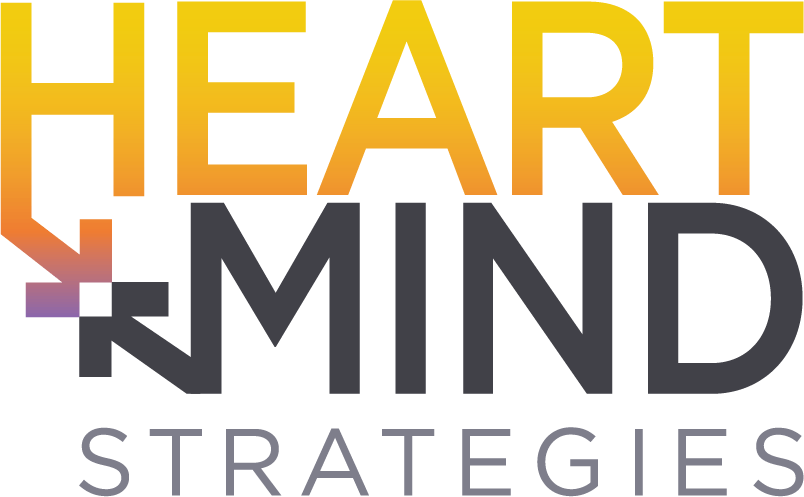By Andrew Cober
Blind Spots in Understanding Human Decision Making
Business leaders, association heads and, yes, opinion researchers, were again confronted in 2020 with the stark reality that single quantitative metrics of attitudes and intended behaviors were insufficient for reliably understanding an issue or population. While the autopsy on 2020 Presidential polling will continue for some time, what is clear, even before pundits and pollsters render their verdict, is a need for more robust understanding of human decision making that serves to champion the human through the power of choice and action.
That robust understanding necessarily emanates from a deeper understanding of stakeholder audiences across the spectrum of your issue. It’s this type of engagement across the issue ecosystem that Heart+Mind Strategies deployed in 2020 to help move the needle in tangible and meaningful ways on a pervasive issue that has become only more pronounced in the unsettled times of COVID-19—Chronic Fraud Victimization.
RELATED: Experts in Human Decision Making
Understanding Chronic Fraud Victimization
Researchers and advocates have sought tirelessly to understand the dynamics of victimization, helping victims and potential targets feel more informed, equipping them to confidently navigate the fraud landscape, and empowering them to stay one step ahead of scammers. However, additional effort and new thinking was needed on how to best support the victims and families of chronic, repeat frauds and scams. By better understanding the drivers of chronic victimization.
In addressing this critical challenge, Heart+Mind Strategies teamed with AARP and The FINRA Foundation to bring together internal association experts, financial and fraud thought leaders with new, holistic, and human-centric perspectives on the dynamics of chronic fraud. We coupled their insights with in-depth research among those victimized by chronic fraud and their families. Through online collaboration workshops and detailed one-on-one interviews to explore the journey through chronic fraud victimization, we then developed a behavior model that served to highlight opportunities for intervention that can serve to disrupt chronic fraud behaviors at key touchpoints. Further, these interventions served to provide clear direction on both tactical and communication approaches for aligned associations and allies to actively engage in disrupting the channels that scammers use repeatedly to deploy their tactics.
RELATED: Disrupting the Cycle of Chronic Fraud Victimization
These insights and directed actions simply would not have emerged through standard “polling” of key targets. It required a broad methodology approach of “getting close” to relevant stakeholders, understanding the drivers that shape their perceptions and building a collaborative solution-oriented platform to disrupt the status quo.
Rumors of polling’s demise are likely exaggerated. But the need to deploy a more robust lens to understanding stakeholder attitudes has never been more pronounced.

About the Author
Andrew Cober is a Senior Vice President and Partner at Heart+Mind Strategies. Andrew has leveraged 30 years experience in implementing quantitative methodologies, advanced analytics and qualitative moderation skills to develop customer satisfaction, brand positioning and strategic communications initiatives for clients at the local, state, national and international levels.
He has worked collaboratively to implement strategic communications research for industry and professional associations such as AARP, Society for Human Resource Management, and The US Travel Association among others. His corporate clients include Marriott International, ComEd, Western Digital as well as government clients such as NHTSA and Freddie Mac.
He earned his bachelor’s degree in political science and sociology at Miami University in Oxford, Ohio where he was awarded the honor of outstanding graduating senior in Sociology.
